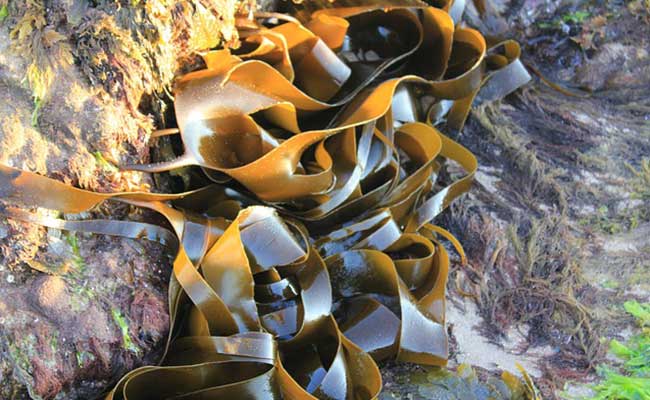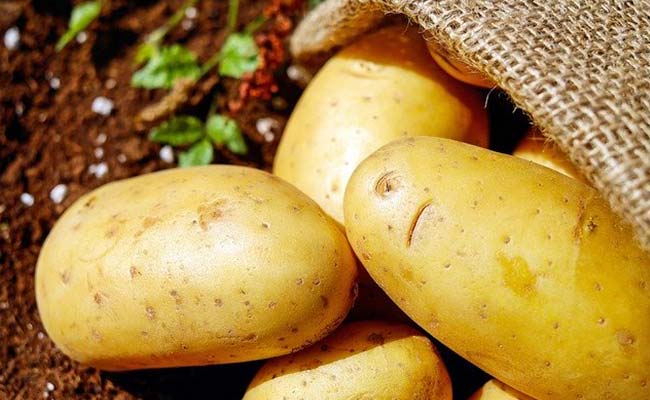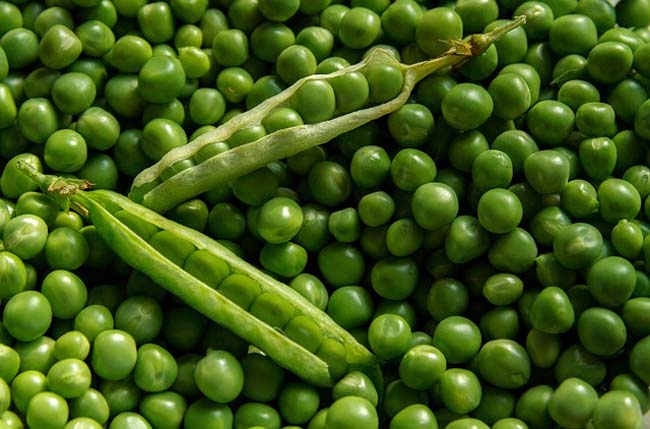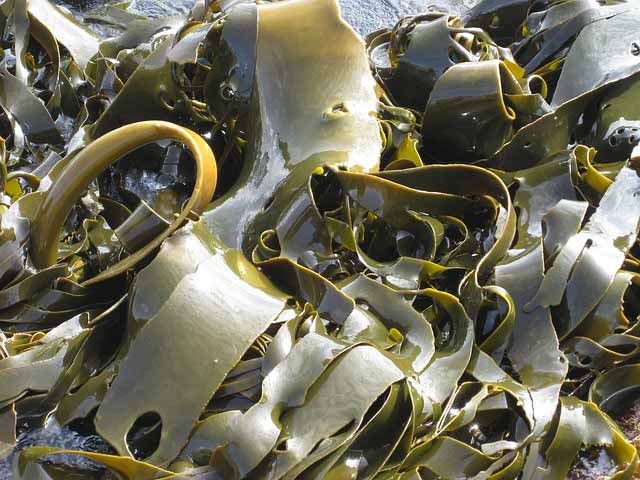Also known as ‘sea vegetables’ and marine algae, there are numerous types of seaweed.
Seaweed is found both fixed and free-floating and comes in a variety of colors: blue-green, brown, green, or red.
Seaweed is rich in many vitamins, including A, C, E, and K, folate, and fibre.
In this post, we'll explore the different varieties, the health benefits, and how to cook and serve seaweed.
Content:
Different Types of Seaweed
Contrary to general assumption, the word ‘seaweed’ doesn’t just pertain to a single ocean plant. It is a collective name used for many species of marine plants.
The term ‘weed’ also proves to be a misfit, as a weed is generally associated with a type of plant that smoothers and harms the surrounding habitat.
Seaweed serves mainly as food for aquatic life. However, seaweed has been consumed by humans for thousands of years.
Its benefits have been passed down through generations in countries such as China, Japan, and Korea, where this nutritious food has long been a part of their diet.
Sea vegetables are considered somewhat of a superfood; because not only are they packed with nutrients and phytochemicals but are also low in calories and fat.
There are many types of seaweed, each falling under a different category based on several factors such as cell structure and pigments.
Since seaweed consumption has deep roots in Japan, thus the varieties tend to have Japanese names.
1. Brown Algae
- Arame: Typically tossed in salads, arame is packed with vitamins A and K, calcium, folate, iron, manganese, and zinc.
- Kelp: Kelp is a great source of vitamins A and K, calcium, iron, magnesium, and of course, iodine.
- Kombu: Has high mineral and folate content and is usually used to treat thyroid problems.
- Wakame: Known as the seaweed found in miso soup. It is rich in vitamins A and B, calcium, fibre, and essential fatty acids.
2. Red Algae
- Dulse: Like wakame, it is often added in soups. Powdered dulse is also used as a thickening agent. This sea vegetable is rich in protein, iron, magnesium, and beta-carotene.
- Laver: Laver is an excellent source of protein, dietary fibre, vitamins, and minerals including calcium, iron, magnesium, and potassium, and antioxidants.
- Nori: It is the ‘sushi’ seaweed and is packed with iron, iodine, magnesium, potassium, and vitamins A, C, B1, and B2. It also has the highest protein content among seaweed varieties.
3. Green Algae
- Ulva: More commonly known as sea lettuce, ulva is said to be the best source of EPA and DHA among other sea lettuces.
- Sea grapes (green caviar): Looking like tiny clusters of green grapes, sea grapes are rich in vitamins A and C, calcium, iron, and zinc. They also offer a considerable amount of protein and omega-3 fatty acids.
4. Blue-Green Algae
- Chlorella: This is a freshwater algae that is rich in protein, vitamins A, B2, and B3, iron, magnesium, and zinc. It has the highest content of chlorophyll of any other plant and is known for its detoxifying properties.
- Spirulina: Also known as ‘pond scum', this natural alga contains high levels of iron, magnesium, B6, calcium, and vitamin. It is also renowned for its antioxidant content.
7 Seaweed Health Benefits
The benefits of seaweed are backed by numerous health peer-reviewed health studies. These fall into seven main areas:
Rich in vitamins and minerals
Seaweed is low calorie and a good source of protein, vitamins B1 and B2, iron, manganese, and copper. Although the amount is dependent on type, it also provides vitamins A, C, E, and K, calcium, magnesium, calcium, folate, and zinc (1).
Some types of seaweed, particularly chlorella and spirulina, supply protein containing the full amino acid range (2, 3). Research also shows that seaweed contains good amounts of vitamin B12 and Omega-3 fatty acids (4, 5).
Supports thyroid gland function
The thyroid gland helps the body with the production of energy and growth, and the reproduction and repair of damaged cells through the release of hormones (6).
To create such hormones, the body requires sufficient levels of iodine. Therefore, iodine deficiency can cause low thyroid function, goiter, and hypothyroidism (7).
Since seaweed thrives in saltwater, it absorbs a significant amount of iodine. This makes it a good source for vegetarians and vegans, in particular.
Depending on the type and the processing it has undergone in manufacture, the iodine content of seaweed may vary.
Here's the iodine content of 3 popular types of seaweed:
- Nori: 37 mcg per gram (25% of the RDI)
- Wakame: 139 mcg per gram (93% of the RDI)
- Kombu: 2523 mcg per gram (1,682% of the RDI) (8).
Reduces the risk of heart disease
Coronary heart disease is the leading cause of death worldwide, with an estimated 3.8 million men and 3.4 million women dying from the disease each year.
Several factors, including high cholesterol, elevated blood pressure, smoking, being overweight or obese, and a sedentary lifestyle, can heighten your risk of heart disease.
Bad dietary habits such as the over consumption of meat and trans fats from processed foods can cause low-density lipoproteins (LDL), also known as ‘bad cholesterol', to buildup in your arteries and cause heart disease.
In one study, seaweed was shown to help reduce the low-density lipoproteins (LDL). (9).
Lowers risk of diabetes
Type 2 diabetes occurs when the body doesn't produce enough insulin to function properly, or the body's cells don't react to insulin. This means glucose stays in the blood and isn't used as fuel for energy
Research shows that brown seaweed, which contains a carotenoid named fucoxanthincan, can help enhance blood sugar control. (10).
Additionally, in animal studies, another substance in seaweed called alginate prevented blood sugar spikes post eating a high-sugar meal (11, 12).
A good source of antioxidants
Free radicals are unstable atoms that can damage cells, causing illness and aging. We fight free radicals with antioxidants, which can make them less reactive and less likely to destroy healthy cells (13, 14).
Seaweed has good amounts of antioxidant vitamins – A, C, and E – and antioxidant minerals such as zinc and manganese.
Seaweed also contains essential plant-based micronutrients – known as polyphenols – such as flavonoids and carotenoids, which may protect cells from the damage that free radicals cause (15, 16).
The various plant compounds in seaweed work together to create a powerful antioxidant effect and protect the body (17).
Promotes good gut health
This is largely due to its fibre content. Approximately 25% to 75% of the dry weight of seaweed is made up of fibre (18).
Fibre contributes to good gut health. It aids in digestion and may act as a food source to good bacteria thriving in your colon.
Furthermore, seaweed contains specific sugars known as sulfated polysaccharides, which are thought to increase good bacteria growth in your gut (19).
May aid weight loss
It is no secret that seaweed is low in calories, making it a perfect addition to your weight loss regimen.
Because seaweed is high in fibre, it may slow the emptying of the stomach, thereby improving the absorption of nutrients and minerals, making you feel fuller for a longer time, and suppressing your appetite in the natural way (20).
Summary
Seaweed is low calorie and high in antioxidants and fiber. Regular consumption could lower your risk of heart disease and type 2 diabetes, and may aid in weight loss.
How to Eat Seaweed
Adding sea vegetables to your diet is easy when you know how. Here's some tips for some simple ideas that you can use every day.
- Add kombu in your soups and stocks.
- Sprinkle nori strips on your salads.
- Wrap and roll your rice and favorite vegetables in nori.
- Try adding it to your juices and smoothies.
- Use seaweed seasoning when cooking.
- Use kelp noodles instead of traditional varieties.
- Try seaweed crackers.
- Consume it straight from its bag in strip form found in Asian supermarkets.
- Mix soaked hijiki, shredded carrots and ginger, and a bit of soy sauce and olive oil.
- Keep a container of kelp flakes on your dining table and use it to season foods.
Seaweed Health Risks
Seaweed is undoubtedly a highly nutritious food; however, you still need to be careful not to consume too much of it. Here’s why.
1. High iodine levels
Seaweed is very rich in iodine. Excessive iodine consumption can lead to similar symptoms as deficiency, including thyroid dysfunction and goiter (21).
In Japan, the average daily iodine intake is around 1,000 to 3,000 mcg, as opposed to the recommended daily intake for adults of 150 mcg. Japan has one of the highest rates of hypothyroidism (22).
However, since sea vegetables are water-soluble, cooking and processing can affect iodine content. For instance, kelp, when boiled for at least 15 minutes, loses up to 90% of its iodine content.
2. Concentrated levels of toxic heavy metals
Seaweed can absorb and accumulate a high volume of minerals, but the same is true with toxic heavy metals like mercury, lead, and cadmium.
Since humans continue to destroy the ocean by polluting it with industrial chemicals, we see the same risks with eating seaweed as we do with fish: consumption leading to a buildup of heavy metals in the body.
Of course, cleaner seas result in cleaner seaweed, and manufacturing may remove some contamination, but this is something to be aware of.
The good news is that certified organic seaweeds can't contain heavy metals and other contaminants. So opt for these where possible.
Summary
Seaweed contains a lot of iodine and excessive consumption can cause hypothyroidism. That said, sensible consumption supports a healthy diet and protects against iodine deficiency. To avoid heavy metal contamination from sea harvesting, try organic varieties.
Bottom Line
Seaweed benefits are numerous. Yet this family of sea vegetables – as the various varieties are referred to – is an often forgotten plant food that doesn't often make it onto our plates.
However, it is the best dietary source of iodine, which is important for thyroid gland health. But remember not to over eat seaweed because it can have the reverse effect.
It should be noted that pregnant women should supplement with the exact 150 mcg iodine recommendation rather than consume seaweed, as the intake is harder to monitor and easy to go over the RDA.
Seaweed also contains vitamin K, B vitamins, zinc and lots of iron. Additionally, it is full of antioxidants that help protect your cells from damage.
Seaweed is a highly nutritious food, yet best enjoyed in small daily or by-daily amounts.





Leave a Reply